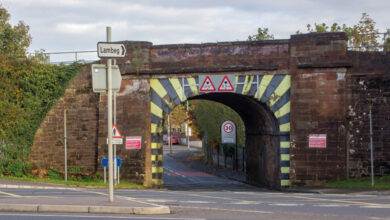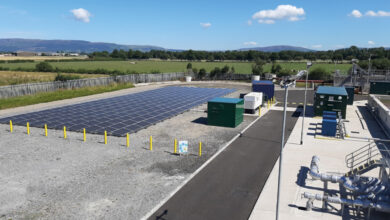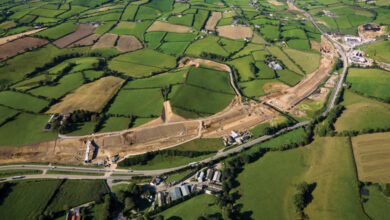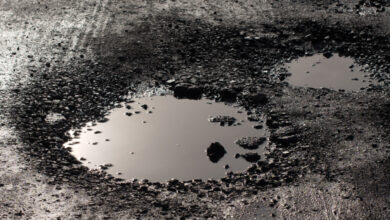What makes a good community?
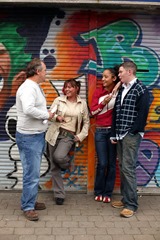 The word community is well used in Northern Ireland but the actual sense of community and togetherness varies widely from place to place. Six community workers, mainly from city settings, share their views on what makes a good community.
The word community is well used in Northern Ireland but the actual sense of community and togetherness varies widely from place to place. Six community workers, mainly from city settings, share their views on what makes a good community.
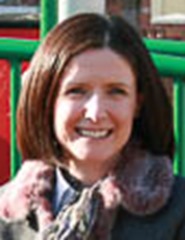 Paula Bradshaw · Director · Greater Village Regeneration Trust · South Belfast
Paula Bradshaw · Director · Greater Village Regeneration Trust · South Belfast
A good community is one that is at peace with itself; one that is confident and assured of its position within Northern Ireland and feels that it is making a positive contribution to wider society.
A good community should be self-governing with a high expectation that its ‘social norms’ and boundaries will be adhered to by everyone living there.
A good community would ideally have a healthy mix of people from different religious, cultural and ethnic backgrounds, so that the young people grow up to accept difference and display tolerance and respect at all times.
A good community will have empowered people who have the best interests of everyone at heart, and who are selfless in pushing for improved community facilities and public services for their area.
A good community will be a happy place where children are collectively looked after and older people are valued for their leadership potential.
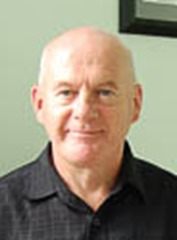 Paul O’Neill · Community Development Co-ordinator Ashton Community Trust · North Belfast
Paul O’Neill · Community Development Co-ordinator Ashton Community Trust · North Belfast
A good community is one where neighbours take pride in their living environment, respecting and supporting one another regardless of age, gender, race or creed. A good community is a cohesive, safe, confident, prosperous and happy place. It is free of poverty and crime, providing a high quality of life for everyone that lives there.
It values and promotes open, participative development processes underpinned by a continuous culture of trans-generational learning. It is somewhere that people wish to stay in and see their children and grandchildren grow up in. It attracts, welcomes and respects outsiders, challenging ignorance and prejudice wherever it arises.
It open-handedly shares its knowledge and expertise with others. The reality in many urban communities of entrenched poverty, disadvantage, exclusion and powerlessness may make all of this seem a naïve and utopian idea, yet it is the vision that inspires and keeps us going.
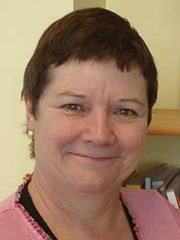 Avila Kilmurray · Director · Community Foundation for Northern Ireland
Avila Kilmurray · Director · Community Foundation for Northern Ireland
A good community is a place where people want to live – no boarded-up houses; an environment that is healthy and welcoming; and neighbours that you can be open and honest with. It is a community that looks out for its elderly and more vulnerable residents as well as creating space for them to be active. It raises children together, rather than treating young people with suspicion, and it welcomes diversity.
A good community is resilient when there are problems and it is there when you need it, without being judgemental or suffocating.
Good communities will ideally have access to essential services and will value their sense of space and place, enabling people to connect with one another and to develop both individually and collectively. Good communities can be rural or urban; they can be affluent or disadvantaged because essentially they are all about people.
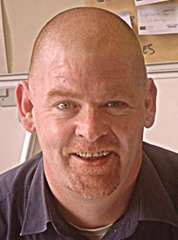 Colin Devine · Co-ordinator · North-West Community Network
Colin Devine · Co-ordinator · North-West Community Network
Having spent most of my life in a city of many identities – and as many names – it is not so easy or even fair to pin down what makes a good community. Of many characteristics that can be present though, this city continues to prove that one of them has to be the ability to adapt and undergo change.
Again, with unashamed reference to this place, communities that are called upon to show resilience usually find themselves better able to become self-determining. Inevitably, this nurtures a confidence in one’s identity that can become a bustling bridge to link it with other communities.
Another key element actually combines the two elements mentioned above. All of our communities face an ongoing need to change, which is best done with confidence. This then requires strong leadership: perhaps the most demonstrable feature, in my view, of what makes for a good community.
What makes a good community?
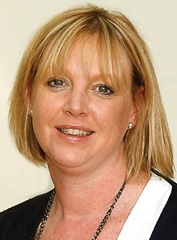 Kate Clifford · Organisational and Development Manager · Rural Community Network
Kate Clifford · Organisational and Development Manager · Rural Community Network
I think it’s where people look out for and work with each other to make everyone’s quality of life better. The concept of working collectively has been one of the reasons why the human species has flourished.
We have over the generations realised that it is the mixture of a wide variety of human talents and abilities which be combined to add up to more than the sum of their parts.
We see many ‘good communities’ in rural areas where groups of people actively work to address the common stress or strain that impacts negatively on people’s lives. So they might set up a luncheon club providing affordable, nutritious meals for local elderly people that also encourages social interaction and goodwill between generations.
We see organised litter picks, community clean-ups, fundraising for facilities etc. that create a sense of common purpose, civic pride and a sense of pro-active volunteerism that enables local people to work together to address local problems.
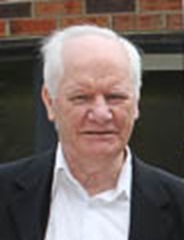 Eamonn Deane · Director · Holywell Trust (Derry)
Eamonn Deane · Director · Holywell Trust (Derry)
“Among the tribes of northern Natal in South Africa, the most common greeting, equivalent to ‘hello’ in English, is the expression ‘Sawu Bona’. It literally means, ‘I see you.’ If you are a member of the tribe, you might reply by saying ‘Sikhona’ (I am here). The order of the exchange is important: until you see me, I do not exist. It’s as if, when you see me, you bring me into existence.
“This meaning, implicit in the language, is part of the spirit of ubuntu, a frame of mind prevalent among native people in Africa below the Sahara. The word ubuntu stems from the folk saying ‘Umuntu ngumuntu nagabantu,’ which, from Zulu, literally translates as: ‘A person is a person because of other people.’ If you grow up with this perspective, your identity is based upon that fact that you are seen – that the people around you are seen – that the people around you respect and acknowledge you as a person.”*
During this year when Derry has been celebrating its status as City of Culture there have been thousands of visitors to the city. It has felt as if we are being seen for who we really are for the first time by the outside world. It has been a really good experience. So when addressing the question “what makes a good community?” we can draw on this experience to say that the shared search for authenticity is the real beginning point and that we have begun that journey together in this city this year.
* The Fifth Discipline Handbook: Strategies for Building a Learning Organization, Peter M Senge (1994)

